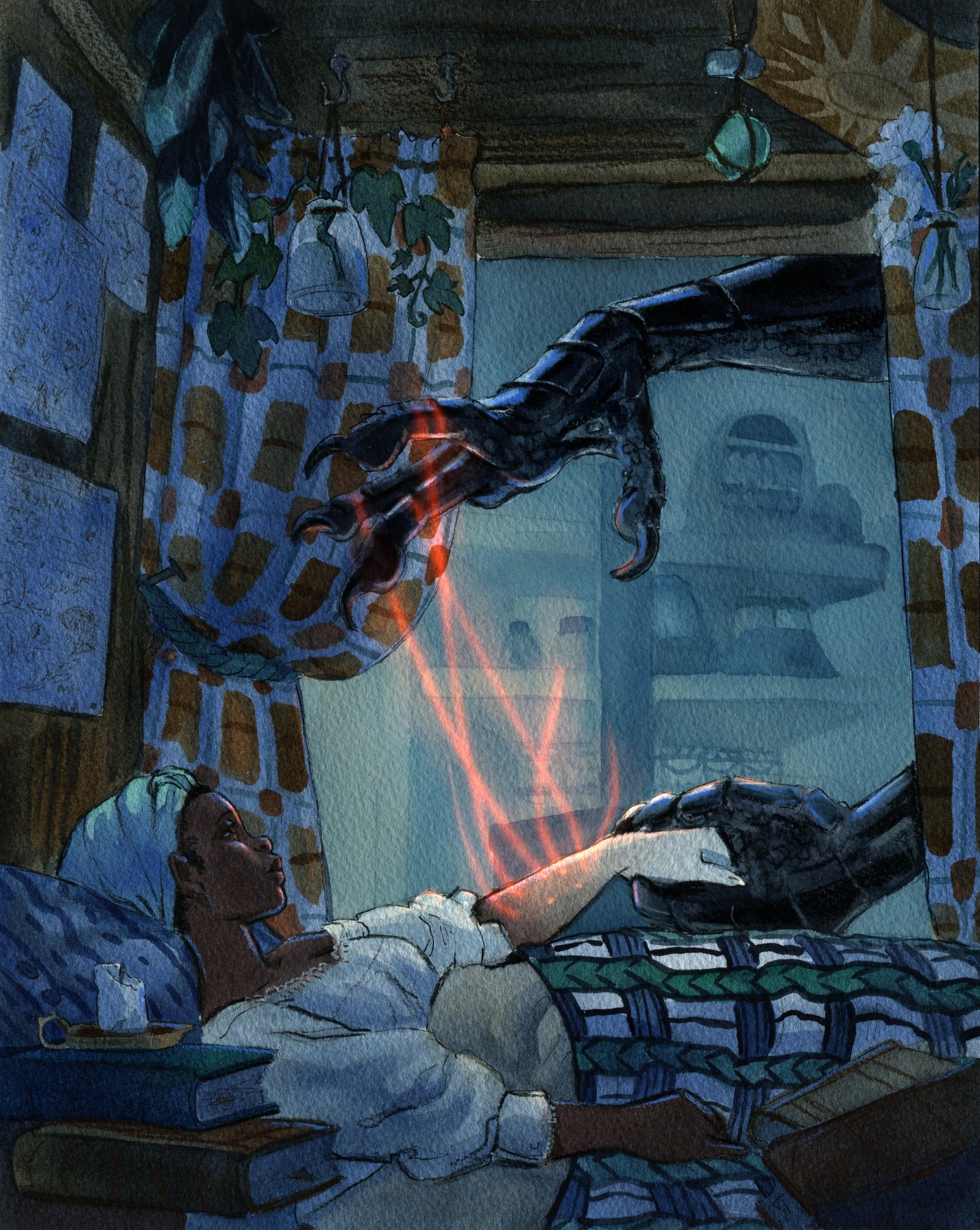Chapter 48:
The Maceration of the Soul
Moth went to bed early, strangely fatigued by the day that wasn’t full of labor, drained down to her bones.
She curled up under the blankets, staring listlessly at the walls of her cupboard bed – they were decorated with copied notes from the journals, full of information flower bed layouts or start certain plants from their seeds.
It was early still, so Moth grabbed one of the journals to glean through it again, but a heavy exhaustion began to weigh her down, and she let the journal slip from her hand and closed her eyes – but couldn’t sleep.
She felt dizzy and nauseous, as if she’d drunk too much wine, but couldn’t get comfortable enough. She tossed her blankets off and felt too cold. She grabbed another one from the foot of her bed but felt too hot. Sweat began to pool at her collar.
After two hours of this, she angrily got out of bed to go to her water pitcher, but the act of standing spun her head; she stumbled and crashed into a chair.
Oh god, please, I don’t want to be sick. Moth thought angrily. She waited for her dizziness to recede, and then pulled herself up to drink water. She still felt too hot.
Moth crawled back into her bed.
Eventually, sometime past midnight, she fell into a fragmented sleep and dreamed about the hen. Each blister popped and oozed, and the smell in the dream
